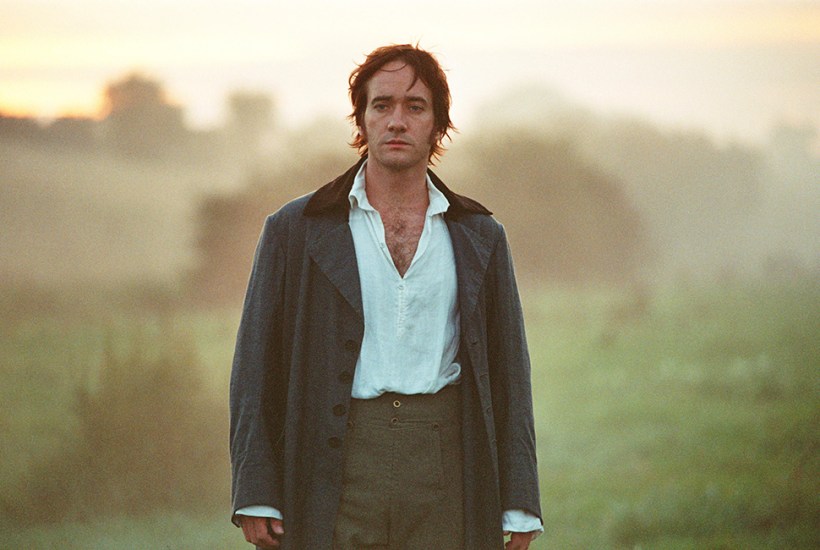In Competition No. 3323 you were invited to submit an extract from a book review written by a well-known author which trashes a work by another well-known author that is generally deemed to be a classic.
Virginia Woolf took a dim view of Ulysses. In a 1922 diary entry, she wrote: ‘I finished Ulysses and think it a misfire… The book is diffuse. It is brackish. It is pretentious.’ Graham Greene was no fan either, judging it to be ‘a big bore… really one of the most overrated classics’. Then there is H.L. Mencken’s characteristically pithy verdict on The Great Gatsby: ‘A glorified anecdote.’ And, more recently, Geoff Dyer’s withering dismissal of Julian Barnes’s Booker Prize-winning The Sense of an Ending: ‘It isn’t terrible, it is just so… average…’
In a smallish entry, an honourable mention goes to David Shields’s Wodehouse skewering Nineteen Eighty-Four: ‘Now had he said “Great Aunt is watching you”, it would have been quite another matter.’ And to Richard Spencer’s Shakespeare on The Catcher in the Rye: ‘This tale, told by a phoney, full of noise, is “Hamlet-Lite”, its lies a wanton boy’s.’
The winners below net £30.
Embarking upon Miss Austen’s comedic novel Pride and Prejudice with a natural appetite for a hearty guffaw, the reader finds himself utterly confounded. He shudders at its parsonical title, the provincial Meryton setting. He finds no instance of exaggerated physiognomy or eccentric nomenclature to tickle his ribs, the numerous, marriageable Bennet girls with whom Miss Austen principally concerns herself remaining indistinguishable as caged parakeets. Such men as the copious plot provides are weak, oleaginous or haughty, though never so much so as to inspire a belly laugh. Is there compensating drama, pathos, sentimentality? Alas, no. No, Miss Austen’s protagonists do not act their parts, instead merely inhabiting them as if they were not in an entertainment at all. As the novel unravels with one Bennet interestingly ruined offstage in Brighton while her elder sister is wed safely to wealth, the reader’s lips will likely noiselessly describe the perfect parallel lines.
Adrian Fry/Charles Dickens
Miss Austen is a lady of sound judgment and good character. Her book begins promisingly. The hubris in the title seems destined to result in tragedy. The opening, speaking of universal truth, hints at an implacable, immutable fate that will dominate the book. Why, then, does Austen then present us such an anodyne, anaemic plot? Darcy emerges unscathed from the lake when he could surely have drowned. This would have led to Lydia’s ruin, with no one to save her reputation, then shame on the entire Bennet family and the inevitable suicide of the remaining Bennet girls. A humiliating skimmity ride of Bennet effigies could have magnified the horror and tragedy and provided much-needed local colour. Mrs Bennet could then have murdered Wickham in a rage for revenge, she in turn being hanged by the neck. This, I suggest, would be a far more satisfying story. An opportunity missed, I’m afraid.
David Silverman/Thomas Hardy
Let me not to the writing of great lines
Admit impediments, but paradise,
Lost in a maze of overwrought designs,
Sickens the appetite and is a vice.
Hie thee hither Milton and I’ll pour
My righteous condemnation in thine ear;
We have divine accounts and need no more.
Your monstrous epic brings no joy, I fear.
Of man’s first disobedience we are told
In Bible words with which you should not vie
Yet pompously a fable you unfold
And you alone, dear Milton, can know why.
Your tiresome verse is like my witch’s brew.
Methinks, Beelzebub inspired you.
Frank McDonald/Shakespeare
I had hardly embarked upon Three Men In A Boat, my salty finger hovering expectantly upon the corner of the first page, when its facetious tone rendered me precipitately insensible. The most credulous mariner or deliriously slumbering sailor could not imagine gentlemen less fit to gaze into the magic glass of the watery deep, or to tangle with those who would hunt fish to the demoniac ends of the earth. At first sight, you would hardly believe they might board a vessel, and subsequent revelations prove their ineptitude with the steering oar. Would I had Jerome in my grasp, and that Queequeg might insert a curving blubber-hook into this limp, impoverished tale, to dispose of it in the wintry waste of deserted ocean. I opine that there is neither nourishment for thy soul here, nor, I bethink me, entertainment. Leviathan it is not. To say nothing of the ship’s dog.
Bill Greenwell/Herman Melville
And would you be a Realist?
I thought you not so cruel.
First, learn to be Depressing –
A very simple rule!
Then, write of Emma Bovary,
An inconsistent fool.
You only need one Character
To make your story fun;
The rest can be Predictable
Drawn in dimensions: one,
But now you need a Plot, you know,
To make the novel run.
So borrow one from Walter Scott,
But bring it up to date
And place it somewhere deadly dull
Where Emma meets her fate
And no one uses Common Sense
Until it’s far too late.
Frank Upton/Lewis Carroll
No. 3326: Rhyme time
You are invited to submit a nursery rhyme recast in the style of a well-known poet (please specify). Please email entries of up to 16 lines to lucy@spectator.co.uk by midday on 15 November.
Got something to add? Join the discussion and comment below.
Get 10 issues for just $10
Subscribe to The Spectator Australia today for the next 10 magazine issues, plus full online access, for just $10.
You might disagree with half of it, but you’ll enjoy reading all of it. Try your first month for free, then just $2 a week for the remainder of your first year.








Comments
Don't miss out
Join the conversation with other Spectator Australia readers. Subscribe to leave a comment.
SUBSCRIBEAlready a subscriber? Log in